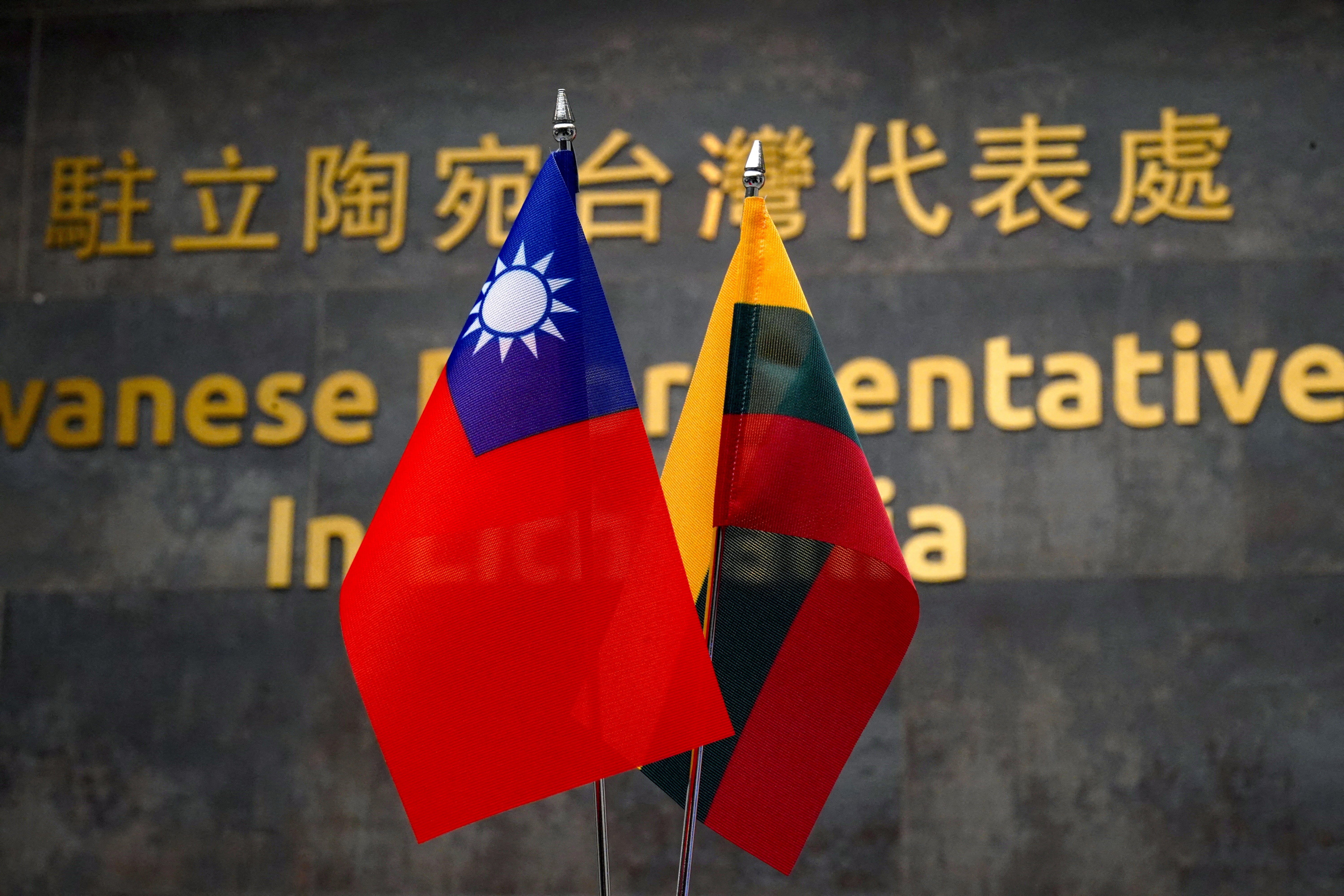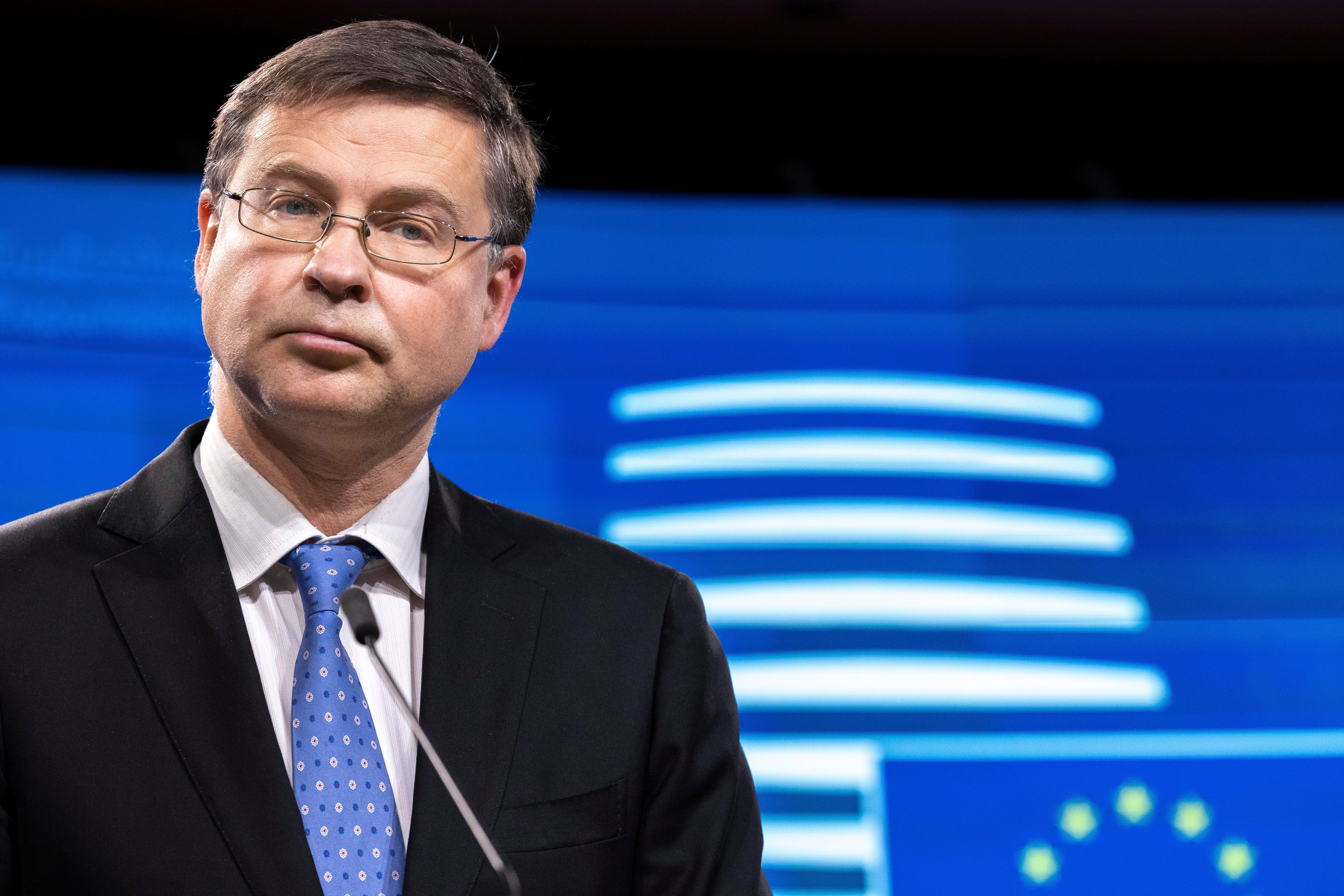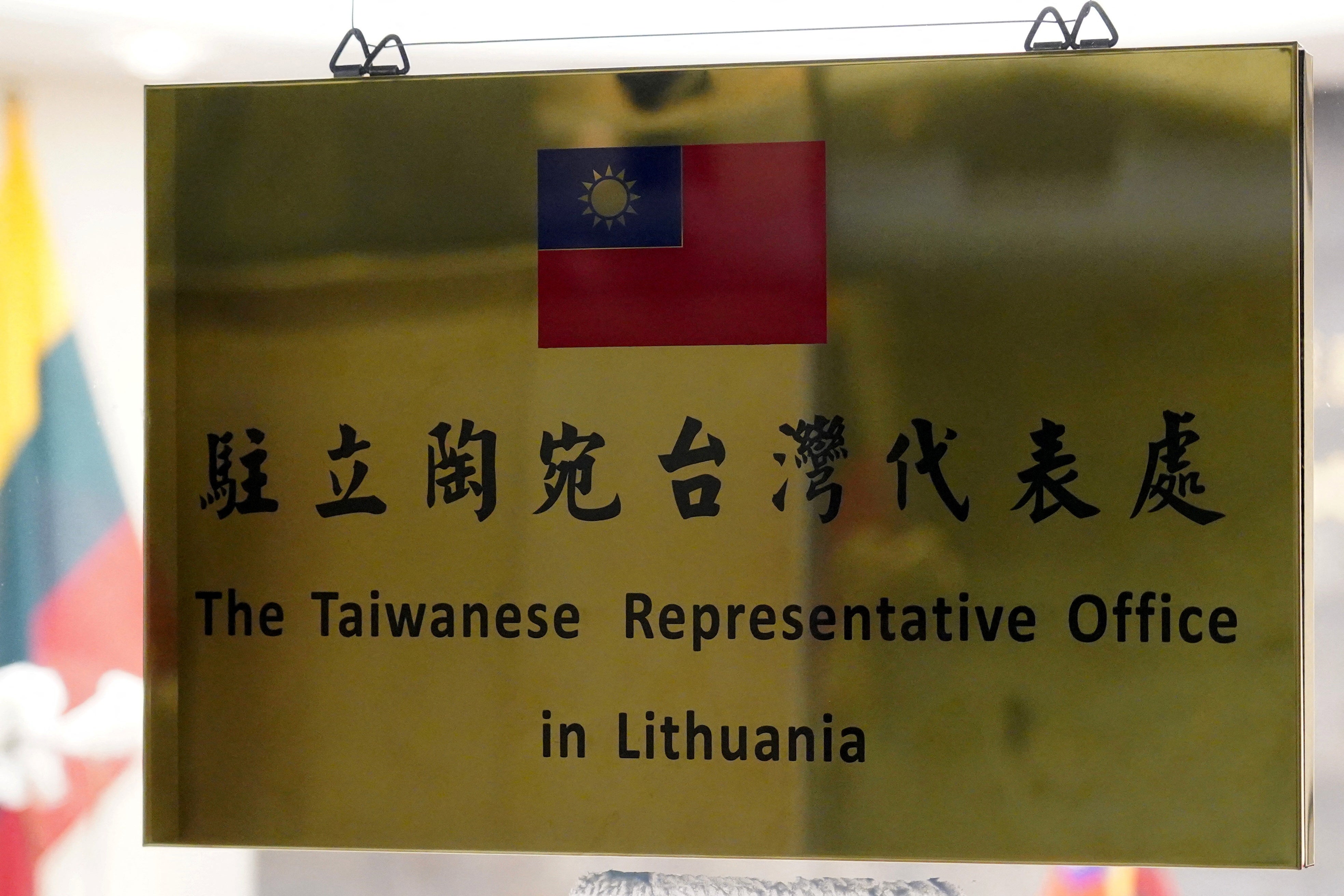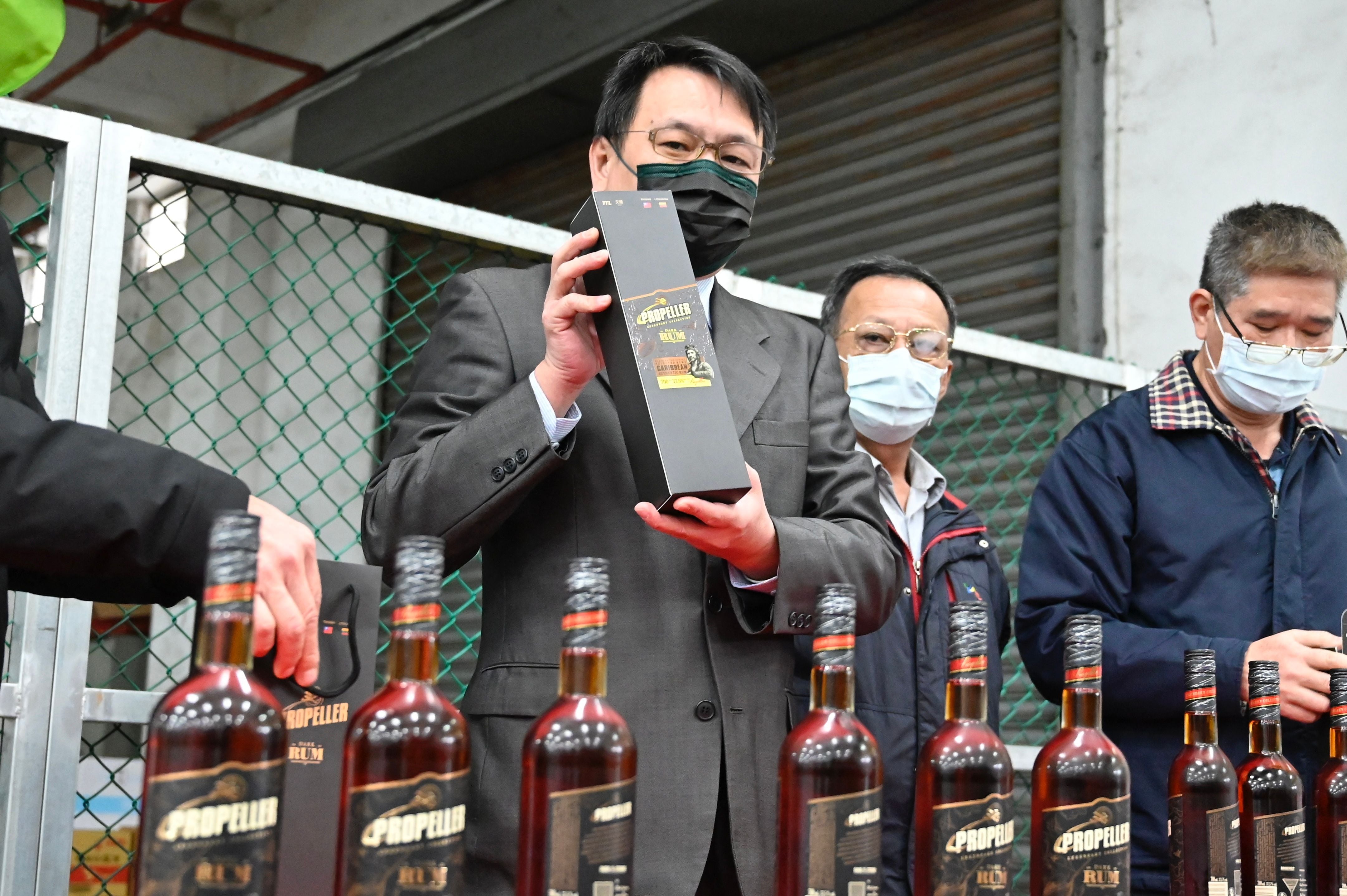How the EU is challenging China over a trade crackdown on Lithuania
While Beijing punishes Vilnius for its deepening diplomatic ties with Taiwan, an EU case against China at the World Trade Organization could mark a turning point in the dispute, reports William Yang in Taipei


In recent months, Lithuanian businessman Ričardas Sedinkinas has seen many of his compatriots being forced to find other markets for their goods following China’s trade crackdown on the Baltic state over its diplomatic support for Taipei.
Beijing has reportedly told multinationals, including car parts giant Continental, to sever ties with and stop sourcing from Lithuania, and recently suspended imports of beef, dairy and beer from the country – troubling both officials and businesses in Vilnius and drawing criticism as well as a legal challenge from the EU.
“Businesspeople from Lithuania have told me about the great impact that comes with China’s coercive moves,” Taipei-based Mr Sedinkinas – who imports amber from his home country – told The Independent.
"At the end of the day, we all want to feed our families and China has a big market. They now have to look for ways to make up for the losses resulting from the deteriorating bilateral relations,” he explained, adding that Lithuanians working in a wide range of sectors including furniture, chemical products, electrical machinery, and timber had been affected.
The growing tensions between China and Lithuania stem from Vilnius’ attempt to elevate bilateral ties with Taiwan, a democratic self-governing island that Beijing views as its territory.
Last July, Lithuania allowed Taiwan to open its representative office in Vilnius – its first new outpost in Europe in 18 years – under the name of Taiwan rather than Taipei, a major diplomatic departure that defied warnings from Beijing.
The move triggered a series of reprisals from China, as Beijing downgraded its diplomatic relationship with Vilnius and refused to clear Lithuanian products through customs or approve import applications from the country.
On top of that, Beijing is reported to have pressured European companies to remove Lithuanian components from their supply chains when exporting to China.
Initially, the European Union hesitated to respond, but last month, Brussels took action – accusing China of discriminatory and illegal trade practices and filing a challenge at the World Trade Organization (WTO).
“Launching a WTO case is not a step we take lightly,” EU’s trade commissioner Valdis Dombrovskis said in a statement on 27 January, adding that repeated attempts to solve the issue bilaterally had failed.

“The EU is determined to act as one and act fast against measures … which threaten the integrity of our single market.”
Since the spat began, China’s trade with Lithuania has dropped tremendously. The European Commission says overall exports from Lithuania to China fell 91 per cent in December compared to the same month in 2020. The most affected industries are pharmaceuticals, lasers, electronics and food.
Since the EU launched its challenge, several nations have requested to join the consultations – including Australia, Canada, the UK, the US, and, unsurprisingly, Taiwan.
This week, the WTO said that the first stage of talks needed to be conducted between the EU and China directly and, if no consensus was reached within 60 days, discussions would enter a second stage. The EU can form a dispute resolution panel with third parties, meaning all the countries that have expressed the willingness to join the case.
The UK and US have criticised China for its “economic coercion” of Lithuania, while Taiwan’s foreign ministry last week accused Beijing of violating international trade norms – behaviour which it said should “not be tolerated”.
Some experts described the EU’s move as a positive development by managing to speak with a single voice on an issue that concerns relationships with China – especially given its economic importance and investment potential for so many of the member states.
“It is an important signal because China was hoping to make this a bilateral issue between Beijing and Vilnius and by filing this case with the WTO, the EU makes it clear that it sees the issue as a European issue,” said Noah Barkin, managing editor at the US-based research institute Rhodium Group’s China practice, and an expert on EU-China relations.
“I think the EU is hoping that by getting China to the table, it can find some sort of mutually acceptable resolution to this dispute. Whether that’s going to happen or not, it’s still unclear,” he told The Independent.

After Brussels’ WTO case announcement, China halted the import of beef, dairy and beer from Lithuania last week without giving any clear explanation.
However, Chinese foreign ministry spokesperson Zhao Lijian called on Lithuania to “stop gathering other countries to stand against China”.
“What Lithuania should do is to recognise the objective facts, correct its own mistakes and return to the right path of insisting there is only One China,” he said.
Days later, France’s foreign trade minister Franck Riester said that he and his EU counterparts believed that Lithuania was a victim of coercion from China and would fast-track plans affording Europe new powers to fight back when necessary.
“What China is doing with Lithuania is clearly coercion,” Mr Riester said on Sunday before trade ministers from EU member states met to discuss the matter. “The Chinese are using trade and economic weapons to put political pressure on us.”
The EU is proposing an instrument that will allow Brussels to acquire so-called anti-coercion capability, according to Mr Riester, whose country currently holds the bloc’s rotating presidency.
The tool would allow the bloc to freeze access to public contracts, hold up health and safety authorisations on certain products, and impose bans from EU-funded research projects.
While China is closing its door to Lithuanian products, other opportunities come along
Mr Barkin says that while the anti-coercion instrument will probably not be of much help in the case involving Lithuania, it still sends a signal that Brussels is serious about countering economic coercion from China and other countries.
“The Lithuania case has underscored the importance of having such a tool for giving the EU a bit more leeway than it currently has to respond to this kind of economic coercion,” he said.
On the other hand, Marcin Jerzewski, a research fellow at the Taiwan NextGen Foundation, a think tank in Taipei, says there is a tendency for China to politicise “agricultural products” in its economic coercion against certain countries.
In 2021, China banned imports of pineapples from Taiwan, claiming risks of “harmful creatures” that could affect its crops. Taiwanese authorities refuted Beijing’s explanation and characterised it as Beijing’s attempt to increase political pressure on the island.
“What’s at play here is China has been trying to politicise trade in agriculture in several cases, which began with Taiwan,” Mr Jerzewski told The Independent.
While Lithuanian businesses in certain sectors have been affected by Beijing’s retaliatory move, Mr Sedinkinas says other nations, including Taiwan, have come to the rescue.
Last month, Taiwan’s state-run Taiwan Tobacco and Liquor Corporation purchased a shipment of 20,400 bottles of Lithuanian rum that were originally blocked by Chinese customs from entering China. According to Focus Taiwan, a batch of 1,200 bottles of Lithuanian rum were sold out in less than an hour when they hit the shelves in Taiwan.

More significantly, Taiwan has announced major financial backing for Lithuania in recent weeks – firstly a $200m (£147m) investment fund swiftly followed by the launch of a $1bn credit programme for joint projects between Lithuanian and Taiwanese companies in areas including semiconductors, biotechnologies and satellites.
Mr Sedinkinas says some Lithuanian business owners have realised that, despite losing the option to do business with China, they have the opportunities to deepen economic and trade ties with partners in other countries.
“While China is closing its door to Lithuanian products, other opportunities come along,” he said. “There is a lot of support from European countries, the US and other like-minded countries in Asia. Perhaps there are ways to make up for the loss resulting from the deteriorating relationship with China.”
While Mr Sedinkinas thinks Lithuania’s case may serve as a wake-up call for other European countries to recognize China’s true colours, Mr Barkin thinks it will eventually be up to Germany, which has deep economic ties with China, to decide whether it is willing to sacrifice its business relationship with Beijing in favour of a collective European approach.
“It’s up to Germany, which has the closest economic relationship with China, to drive that process in pushing other European countries in the direction of a more unified approach towards China,” he said.
“It remains unclear if the new government in Berlin is willing to do that or not.”






Join our commenting forum
Join thought-provoking conversations, follow other Independent readers and see their replies
Comments